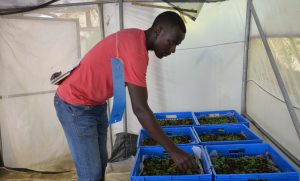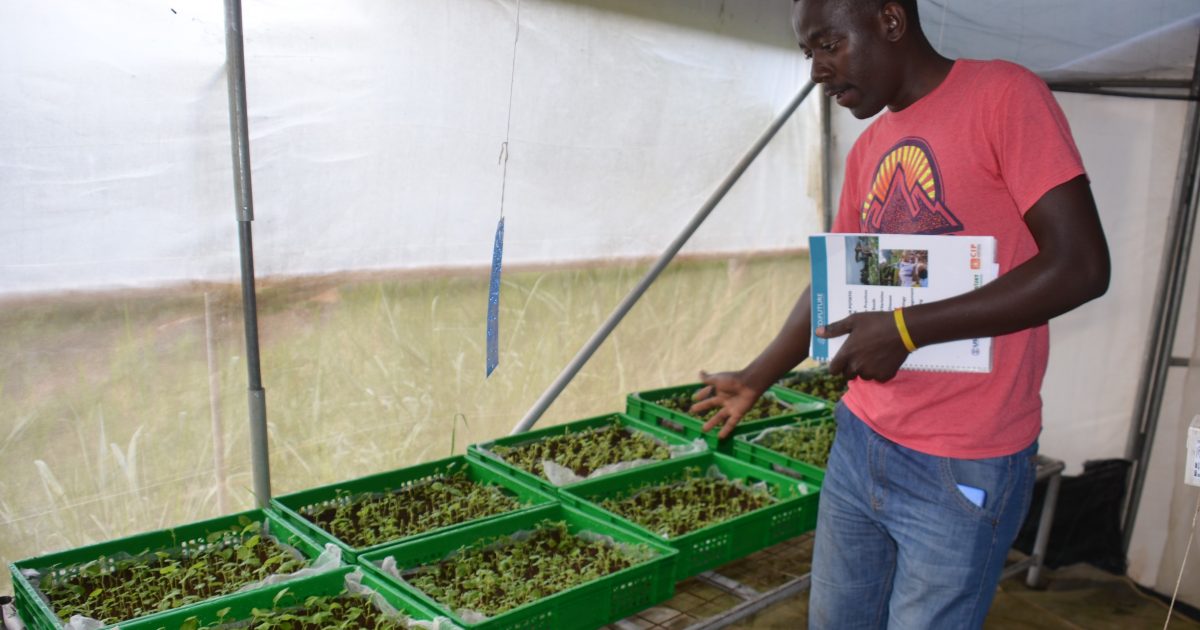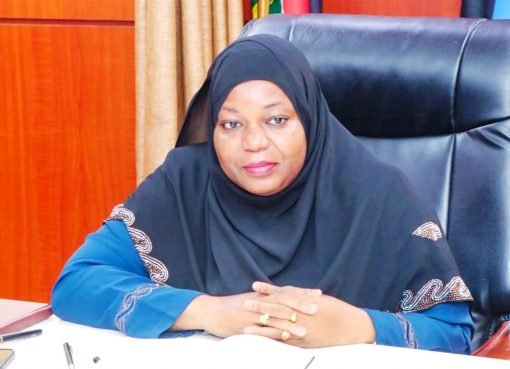Basking under the evening Taita sun, the small screen house tucked in a quiet spot at the hilly Mlawa village of Wundanyi sub-county looks no different from dozens of other greenhouses scattered across several farms in this idyllic rural neighborhood.
However, Taita-Papa Satellite Nursery is no ordinary screen house. The first indicator of this uniqueness is the rigorous admission procedure. A visitor is subjected to meticulous sanitizing; hands must be doused in a cleaning agent and shoes are sterilized on a chemical solution at the entrance.

This is to avoid contaminating the environment inside with pathogens from outside.
“This is a multiplication center. The access is restricted to keep bacteria away,” says Mr. Granton Mwakio, the manager of Taita-Papa Nursery.
The nursery is pioneering potato technology that is geared towards elimination of pests and diseases while bolstering yields for thousands of artisanal farmers across the county.
Dubbed as Rooted Apical Cutting, this technology involves generating certified top-grade potato tubers from potato shoots.
“This is the future of potato farming in the country,” says Mr. Mwakio.
Traditionally, smallholder farmers across the country use low-quality tubers obtained from the market as seeds in their farms. Local farmers are no exception. The tubers are often poor quality and only meant for consumption.
Mr. Mwakio says the seeds result in dismal yields and losses for farmers. However, it is just not the low yields that farmers must contend with. The uncertified potato tubers from the market poses a more ominous risk; they are vectors for devastating diseases and dangerous pests that are expensive to eradicate.
Taita Papa Satellite Nursery is addressing these challenges.
The Rooted Apical Cutting technology aims at bolstering the potato yields while minimizing widespread crop loss from diseases.
The delicate process entails generating top-grade certified potato tubers from cuttings or shoots. At the nursery, the shoots are nurtured under controlled conditions. Temperature, humidity and moisture are carefully monitored to give the plants optimum condition for growth.
After three weeks, the shoots are ready for transfer in the open farms. The farmers plant the shoots and within three months acquire their own tubers for repopulating their farms.
“These tubers become the first seeds the farmers acquire from the shoots,” he explains.
Currently, there are twenty thousand cuttings at Taita-Papa nursery grown from around 700 Mother plants. The cuttings are for Wanjiku and Unica; two potato varieties common with farmers in the region.
The cuttings are extracted from Mother Plant acquired from StokMan Roze Limited; a leading seed producer in the country and a KEPHIS-accredited entity in Naivasha. A mother plants can generate cuttings for four to six months with each giving between 10 to 20 cuttings.
“The Mother Plants produce all cuttings. We plant them in a special medium made from ground coconuts husks for optimum condition to allow for harvest of as many cuttings as possible,” he explained.
This technology has multiple benefits for farmers. A single cutting can produce top-grade tubers that can be used up to the fourth generation with guaranteed maximum yields.
“The first tubers after the shoots mature are the pre-basic. From them, a farmer acquires more tubers. Each generation gives certified tubers that can be used for at least four cycles with good yields,” he says.
Mr. Bill Lay, the proprietor of the nursery, says the yields from tubers generated from seedlings are 20 percent higher than ordinary tubers.
He adds that the technology is to encourage farmers to adopt certified seeds for better yields. The success of this initiative is pegged especially on rural women farmers accepting the benefits promised by rooted apical cuttings.
“Women are trusted adopters and they are the majority of the farmers. Once they pick it up, it will hold. There is a good market for potatoes but the demand is much higher than the supply. This is the doorway to commercializing potato farming,” he added.
Mr. Lay, who is also a director with Kenya Private Sector Alliance, says the nursery will make available certified seeds to the farmers with ease.
“The farmers can get their certified seeds locally. This will cut the costs associated with distance,” he notes.
There are approximately 2,500 potato farmers in the county. Most are located in the highlands where the conditions are conducive for such activities.
Mr. Peter Mwamburi, the chair of Taita-Taveta Potato Farmers’ Cooperative Society Limited, says potential for growing potatoes remains untouched. He cites poor-quality tubers, challenging topography, small sizes of the farms and challenges of getting certified seeds.
The farmers used to get their seeds from certified seed farms in Timau and Molo.
“It’s costly to get the seeds from outside the county and delays too work against us,” he said.
He however says that the society with over 1,200 members will be the force to transform the region into a leading potato producer. In 2021, the society produced 10 tons which the chair terms as little.
“We want farmers to adopt potatoes. We started with less than a hundred farmers and now we have over 1,200. We are heading places,” he says.
With support from partners, the society has reduced farmers’ proclivity for unsafe potato seeds from the markets. The farmers have been trained on best agricultural practices including use of mature organic manure and crop rotation to break disease and pest cycle
Low production has currently barred the cooperative from entering into multi-million potato supply contracts by hotel franchises.
The chair admits they lost contracts of two major international hotels in Mombasa due to uncertainty of meeting the required amounts.
“The hotels wanted more than we could deliver. With more farmers coming on board, we hope to raise our production and meet our clients’ demands,” he says.
By Wagema Mwangi





